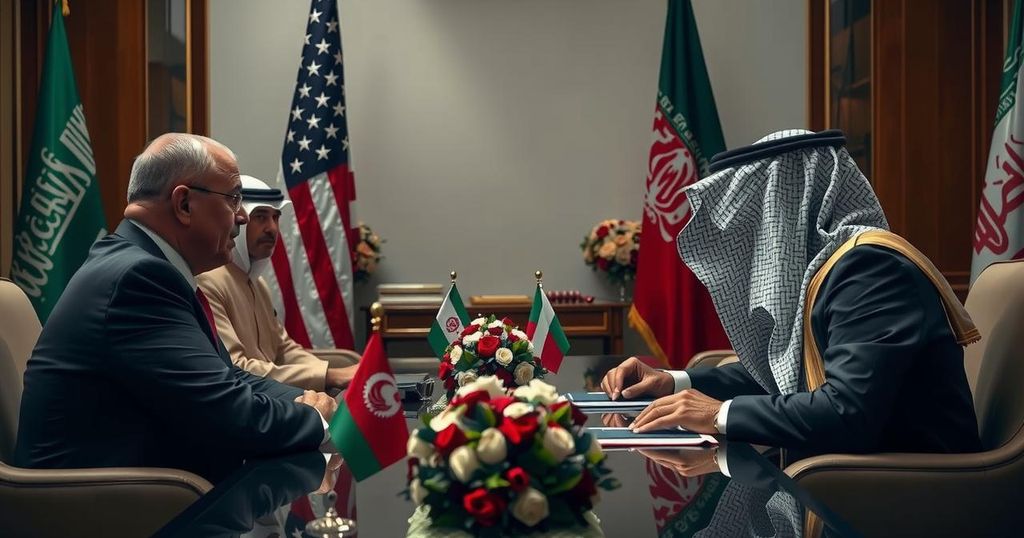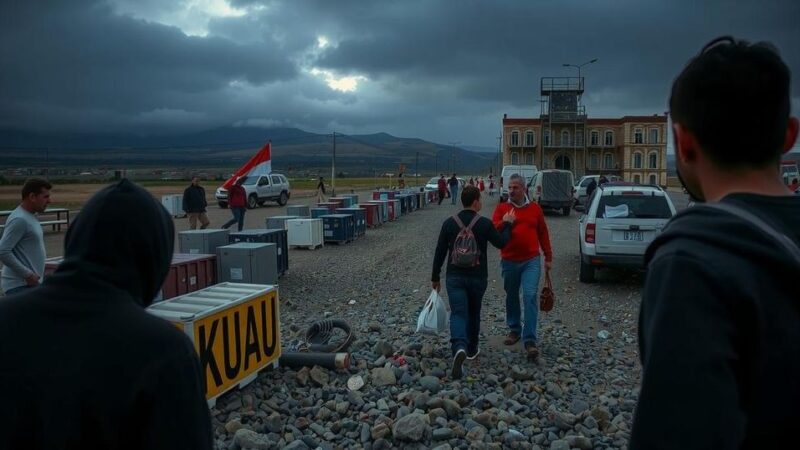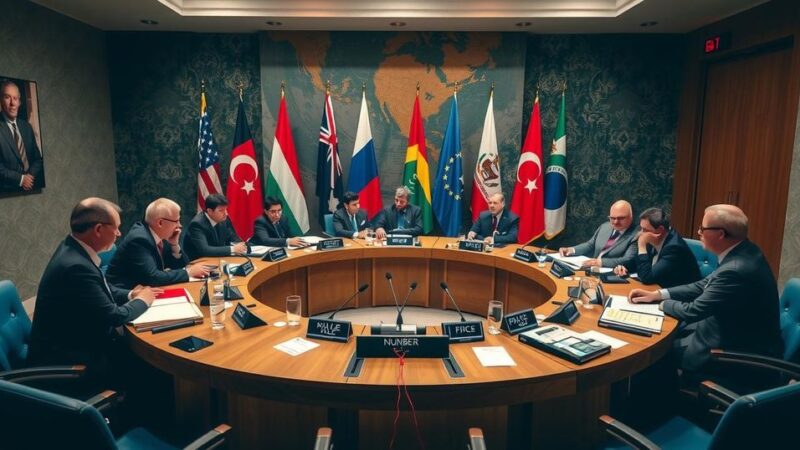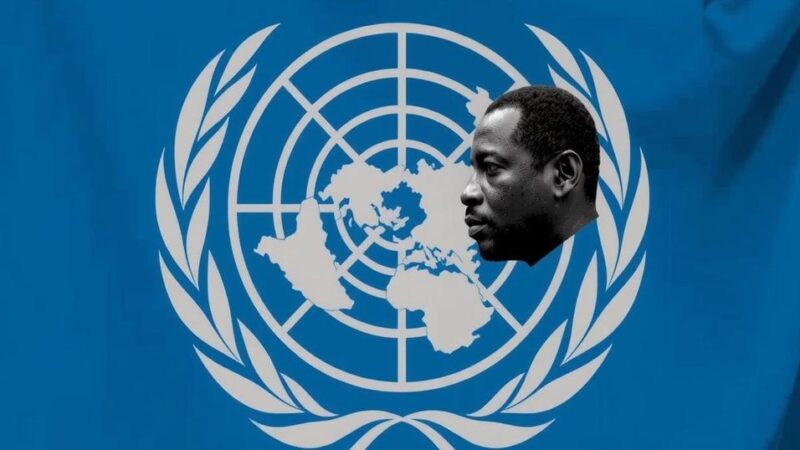U.S. Secretary of State Antony Blinken met with Qatari officials to discuss resolving conflicts in Gaza and Lebanon. His agenda includes increasing humanitarian aid for Gaza, while Israel targets Hezbollah in Lebanon and Syria. The ongoing violence has led to significant casualties, raising concerns over wider regional conflicts. Blinken’s tour aims to foster international support and focus on rebuilding efforts post-conflict.
On Thursday, U.S. Secretary of State Antony Blinken engaged in diplomatic discussions with Qatar’s ruling emir, Sheikh Tamim bin Hamad Al Thani, amid ongoing efforts to de-escalate the conflicts in Gaza and Lebanon. This meeting, a part of Blinken’s regional tour, also included discussions with Qatari Foreign Minister Mohammed Al Thani, culminating in further talks with Arab leaders scheduled for Friday in London. Significantly, one of Blinken’s objectives includes advocating for an increase in humanitarian assistance for Palestinian civilians in Gaza. Concurrently, an international conference in Paris, facilitated by France, aims to gather funds to support individuals affected by the Israeli-Hamas conflict, particularly those in Lebanon. In the context of these discussions, Israel’s military reported carrying out new airstrikes targeting Hezbollah weapon manufacturing facilities located in southern suburbs of Beirut. The Lebanese military subsequently announced the tragic death of three of its soldiers during an Israeli strike while they were conducting a rescue mission near Yater in southern Lebanon. Israel has articulated that its military engagements are directed towards Hezbollah forces, which are backed by Iran, rather than Lebanon itself, albeit the ongoing activities have stirred concerns regarding potential broader regional hostilities. In a related development, Israeli airstrikes also hit Damascus, Syria, resulting in one soldier’s death and injuries to seven others, as reported by Syria’s defense ministry. Israel maintains a strategic silence regarding strikes against Syrian targets but has consistently targeted Iran-aligned entities aimed at obstructing weapon transfers to Hezbollah. Blinken’s diplomatic mission has also seen him visit Israel and Saudi Arabia, where discussions centered on the necessity of halting hostilities in Gaza and prioritizing the release of hostages held by Hamas, which is believed to have retained around 100 hostages—approximately one-third of whom are reportedly deceased amidst ongoing chaos. The ongoing conflict in Gaza initiated following the October 7, 2023, assault by Hamas on southern Israel which claimed approximately 1,200 lives and led to the kidnapping of 250 individuals. Israel’s consequential military response has resulted in over 42,700 Palestinian fatalities, according to the Gaza Health Ministry, a figure that Israeli authorities ascribe partly to the deaths of numerous Hamas militants. In this complex geopolitical landscape, the United States, the United Kingdom, the European Union, and various other nations have classified both Hezbollah and Hamas as terrorist organizations.
The recent escalation of hostilities in the Gaza Strip and Lebanon has drawn international attention and concern. Following the violent outbreak stemming from a Hamas attack on Israel in early October 2023, the geopolitical ramifications have been widespread. U.S. Secretary of State Antony Blinken’s diplomatic efforts underscore the urgency of addressing the humanitarian needs arising from the conflict, while also attempting to mitigate further violence, particularly concerning the broader engagement of regional players such as Hezbollah and Iran. This situation has not only mobilized regional allies, including Qatar, but has also instigated international forums aimed at humanitarian relief and stabilization in the areas affected by ongoing military actions.
In summary, Secretary Blinken’s diplomatic initiatives in the Middle East highlight a concerted effort to address the escalating conflicts in Gaza and Lebanon through increased humanitarian aid and regional cooperation. The dire humanitarian situation, marked by significant casualties on both sides, underlines the complexity of the ongoing conflict and the need for diplomatic solutions to prevent further violence and restore stability. As the global community remains vigilant, the importance of coordinated efforts becomes paramount in seeking a sustainable resolution to these developments.
Original Source: www.voanews.com






